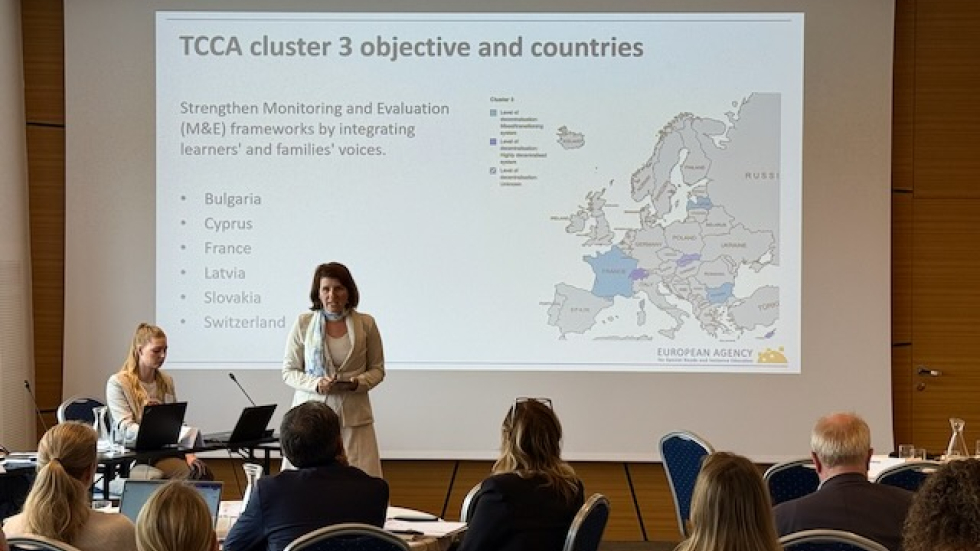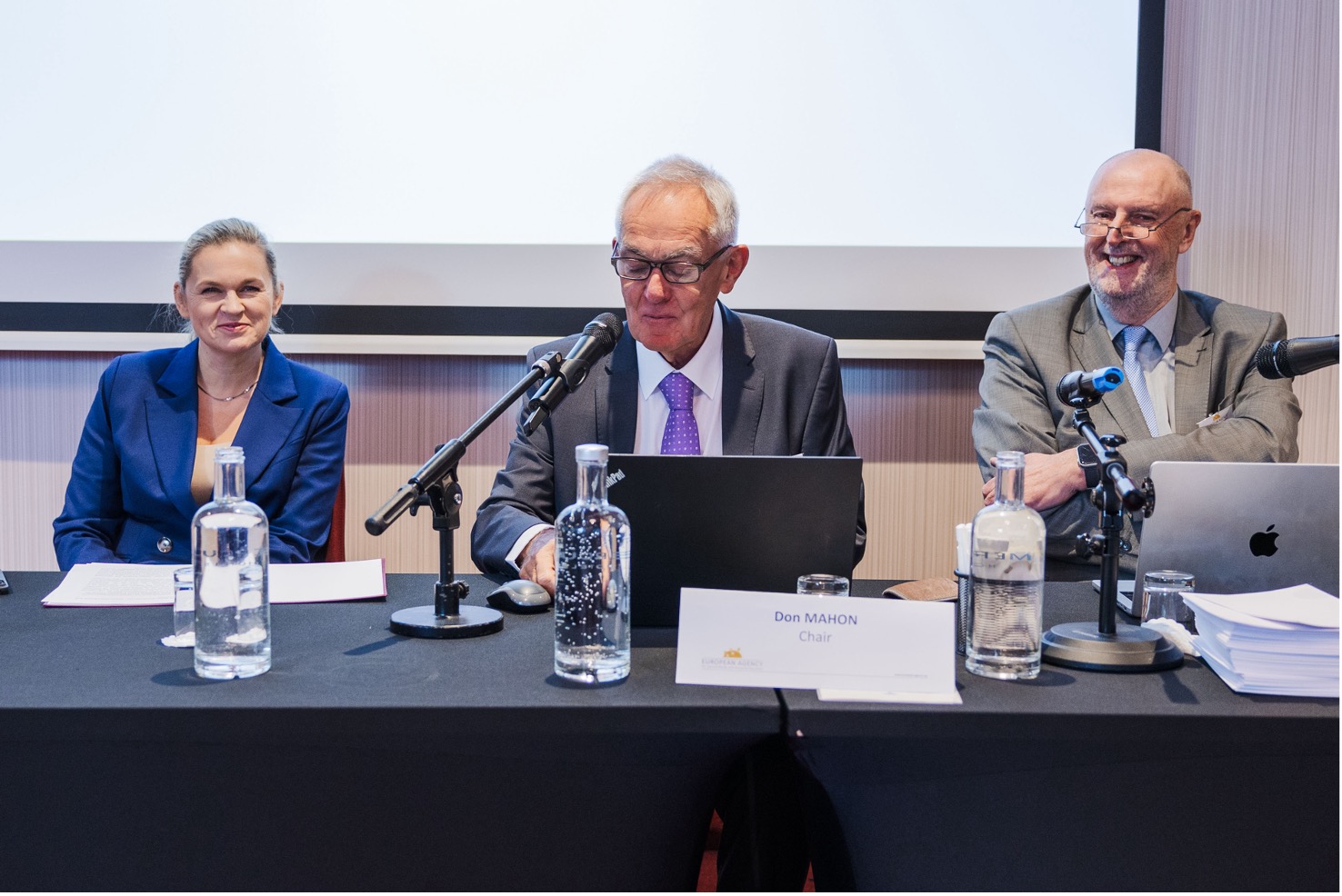EASNIE country representatives and team members travelled to Ljubljana, Slovenia, last week for EASNIE’s spring 2025 bi-annual meeting – an event that highlighted the essential role of country representatives in driving EASNIE’s visibility, relevance and reach across Europe. Bi-annual meetings bring together Representative Board (RB) members and National Co-ordinators to network and exchange insights on inclusive education. The meetings are also key for EASNIE’s operational continuity, with the spring meeting focusing on reviewing and approving the previous year’s annual report and accounts.
The meeting was opened by the Slovenian hosts. State Secretary for Education, Janja Zupančič, described Slovenia’s commitment to safe and supportive learning environments. She shared that 1 March has been declared the Day of Inclusion in Slovenia and emphasised that, while each country must find its own path to inclusion, international co-operation through organisations like EASNIE is invaluable in enabling continuous reflection, professional development and openness to change.
Barbara Kresal Sterniša, RB member for Slovenia, spoke about using culture and the arts to engage participants, describing their importance in promoting inclusion and enabling all voices to be heard.
During the meeting, EASNIE provided updates on current activities, such as Country Policy Development Support and the European Agency Statistics on Inclusive Education, which are both currently in information collection phases. Discussions also focused on enhancing EASNIE’s visibility – a shared goal across all participating countries – as well as strengthening advocacy for inclusive education.
Country representatives from the six Thematic Country Cluster Activities shared progress and overviews of their work in the clusters so far, including the recent peer-learning activities.
To support networking and information sharing, experience exchange sessions also took place. These allowed country representatives to share research, practices and policies on topics including cross-sector collaboration, organisation of specialist provision, developing teachers’ skills for inclusion, and evaluation, monitoring and quality assurance.
Bi-annual meetings are collaborative milestones that strengthen EASNIE’s voice at both national and European levels. The next meeting will take place in Bratislava, Slovakia, in November.


